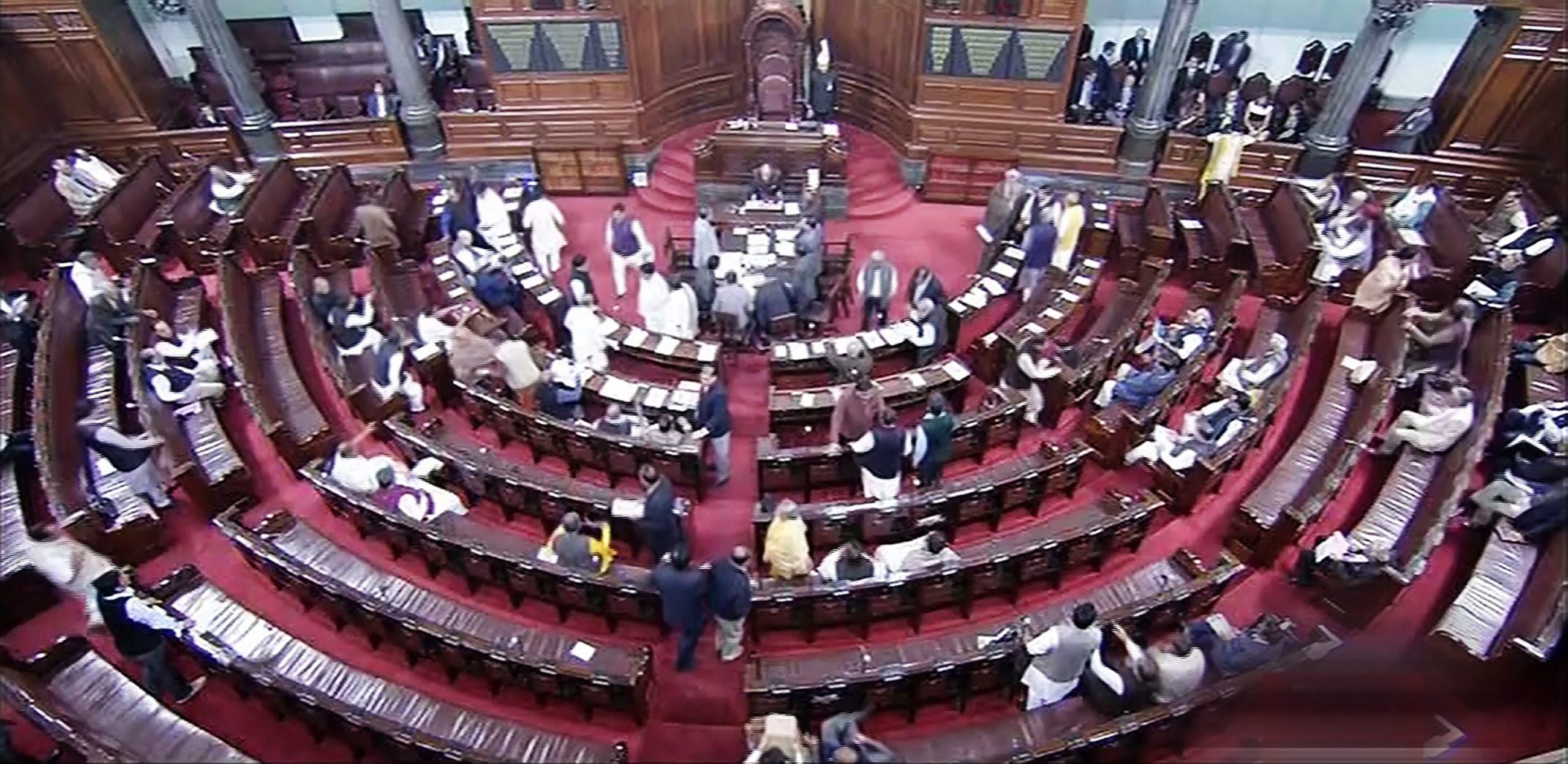Context:
• There are several features that distinguish elections to the Council of States, or the Upper House of Parliament, from the general elections. This article discusses the salient aspects of the Rajya Sabha elections. Elections:
• The Legislative Assemblies send a batch of new members to the Upper House every two years for a six-year term.
• A third of Members of Parliament in the Rajya Sabha (which is a permanent House and is not subject to dissolution), from each State retire once in two years and polls are held to fill up the vacancies.
• In addition, vacancies that arise due to resignation, death or disqualification are filled up through bypolls after which those elected serve out the remainder of their predecessors’ term. Election system:
• Voting is by single transferable vote, as the election is held on the principle of proportional representation.
* A single transferable vote means electors can vote for any number of candidates in order of their preference.
* This method avoids the principle of majority, which would mean that only candidates put up by ruling parties in the respective States will be elected.
• A candidate requires a specified number of first preference votes to win. To qualify, a candidate needs one point more than the quotient obtained by dividing the total value of the number of seats for which elections are taking place plus one.
* For instance, if there are four seats and 180 MLAs voting, the qualifying number will be 180/5= 36 votes.
• Normally, the results are clear after one round itself. The extra candidate is eliminated for want of enough first preference votes. However, counting may go to the second round, if more than one candidate fails to get the specified number. In such a situation, the second preference polled by the candidates will be transferred to them with a diminished value. The total value of the votes polled by the remaining candidates both as first and subsequent preferences would be used to decide the winner. Electorate:
• Only elected members of the State Legislative Assemblies can vote in a Rajya Sabha election.
• The Delhi and Puducherry Assemblies (Union Territories with legislative assembly) elect members to the Rajya Sabha to represent the two Union Territories. Secret ballot:
• The Rajya Sabha polls have a system of open ballot, but it is a limited form of openness.
• There is no secret ballot in Rajya Sabha elections as a measure to check rampant cross-voting owing to corruption.
• In the Rajya Sabha election there is the system wherein each party MLA shows his or her marked ballots to the party’s authorised agent, before they are put into the ballot box.
• Showing a marked ballot to anyone other than one’s own party’s authorised agent will render the vote invalid. Not showing the ballot to the authorised agent will also mean that the vote cannot be counted. And independent candidates are barred from showing their ballots to anyone. Anti-defection provision:
• The Supreme Court has ruled that not voting for the party candidate will not attract disqualification under the anti-defection law and stated that as voters, MLAs retain their freedom to vote for a candidate of their choice.
• However, the Court has observed that since the party would know who voted against its own candidate, it is free to take disciplinary action against the legislator concerned. ‘None of the Above’, or NOTA:
• The ‘None of the Above’, or NOTA system does not apply to the Rajya Sabha polls.
• The Election Commission of India (ECI) had previously issued two circulars giving Rajya Sabha members the option to press the NOTA button in the Upper House polls.
• However, in 2018, the Supreme Court of India struck down the provision, holding that the ‘none of the above’ option is only for general elections held on the basis of universal adult suffrage, and cannot be applied to indirect elections based on proportional representation.
Other aspects:
• The Supreme Court has ruled that a member can vote in a Rajya Sabha election even before taking oath as legislator. It ruled that voting at the Rajya Sabha polls, being a non-legislative activity, can be performed without taking oath. The court has held that a person becomes a member as soon as the list of elected members is notified by the ECI. Further, a member can also propose a candidate before taking oath.

